Now we get to an epic biopic (bioepic?) about a black man (in)famous for being incendiary in his outspokenness – just like the director himself.
Of course we’re taught in school how Martin Luther King, Jr. was the good black civil rights leader, preaching nonviolence and seeking racial harmony, while Malcolm X was the bad one, wanting separation of the races and encouraging fighting fire with fire. Famously, Marvel Comics used King as the inspiration for Professor X and X (well, I just realized the irony) as the inspiration for Magneto in the mutants’ struggle for civil rights (the underlying theme of the X-Men series).
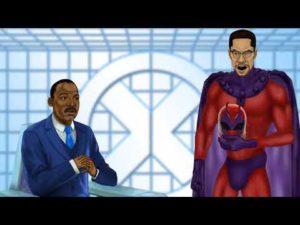
This movie does delve into the rivalry. Although King is not a character, during multiple speeches X makes pointed remarks about him and we then see pictures of King onscreen. The movie doesn’t shy away from X’s most appalling comments, including about how President Kennedy had his assassination coming, presiding over a nation practicing such violence.
However, as King grew more radical in his later years, realizing white people who wanted to end the Jim Crow laws he grew up with in the South didn’t want to help blacks achieve economic equality, X grew more conciliatory in his later years, realizing the corruption in the controversial Nation of Islam and, after leaving it, taking a trip to Mecca that would change his life. The former foster child and convicted felon now experienced a peace previously unbeknownst to him. As such, he now renounced his negative comments about King and about potential white allies, while maintaining that blacks needed to be foregrounded in their own civil rights struggle.
Despite largely seeing eye-to-eye by the ends of their lives, the two men never worked together, as X and King were both assassinated. The official story is that the killings were carried out by the Nation of Islam and James Earl Ray, respectively, but many believe the FBI were behind both assassinations, given how much they hounded both activists.
Regardless of what they have in common, it’s only King who is hailed as a hero these days, thanks to his preaching nonviolence. You could say that’s a mixed blessing, as white conservatives use King to try and SILENCE black protesters, acting as if they’re an authority on what King would want and insinuating he’d oppose the protesters.
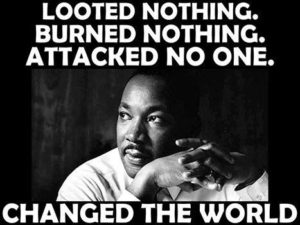
Seriously?
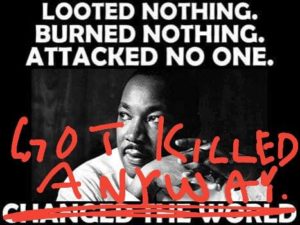
Let’s get all the facts.
Still, there’s something to be said about having your birthday as a national holiday, and essentially teaching children that you’re the most important American in history besides Washington and Lincoln.
X will likely never have his birthday declared a national holiday, but he did get this amazing movie hailing him. We see the racism he struggled with despite being from the North, where there were no Jim Crow laws. Everything from the murder of his father to the mistreatment of his mother to his being informed at school he could never be a lawyer due to his skin color is wrenching to watch. After his attempts to make the most of his circumstances get him locked in prison, he gets introduced to the Islamic religion, and becomes emboldened to stand up for his people. My favorite scene in the movie is when he’s on a talk show with a more moderate black leader, who chastises him for being too aggressive. Malcolm scathingly likens that man to a “house negro” who wants to maintain the order of things and remain loyal to “massash”. Of course it needs to be reiterated that Malcolm X did tone down the violent rhetoric in his later years, and also that at no point did he condone initiating violence; only using it in self-defense. While King famously felt that turning the other cheek would be the way to prove yourself the better people and win support, X understandably argued that it’s not even violence if you’re just defending yourself.
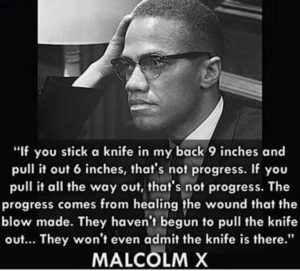
To say the least, he was a complicated, captivating man.. While this movie, at well over three hours, could have benefited from a more stern editor, just like other Spike Lee movies, and the Spartacus-like ending is a bit over-the-top, the movie is consistently engrossing, the main reason being Denzel Washington.
This role elevated Washington from prominent black character actor to one of Hollywood’s top leading men of any race – and deservedly so! It’s one of the best, most dynamic, most exciting performances you’ll ever see. Some people still cry foul over Washington losing the Best Actor Oscar to Al Pacino for Scent of a Woman, but Washington has managed to win two Oscars in his career and unquestionably becoming the defining black movie star of his generation.
Great work!
Bottom line: The subject and star make this more than worth it!
Up Next: More “40 Acres and a Mule” (Lee’s production company)
Questions? Comments? Feel free to post below. Don’t forget to follow us on Facebook and subscribe to us on YouTube!
%
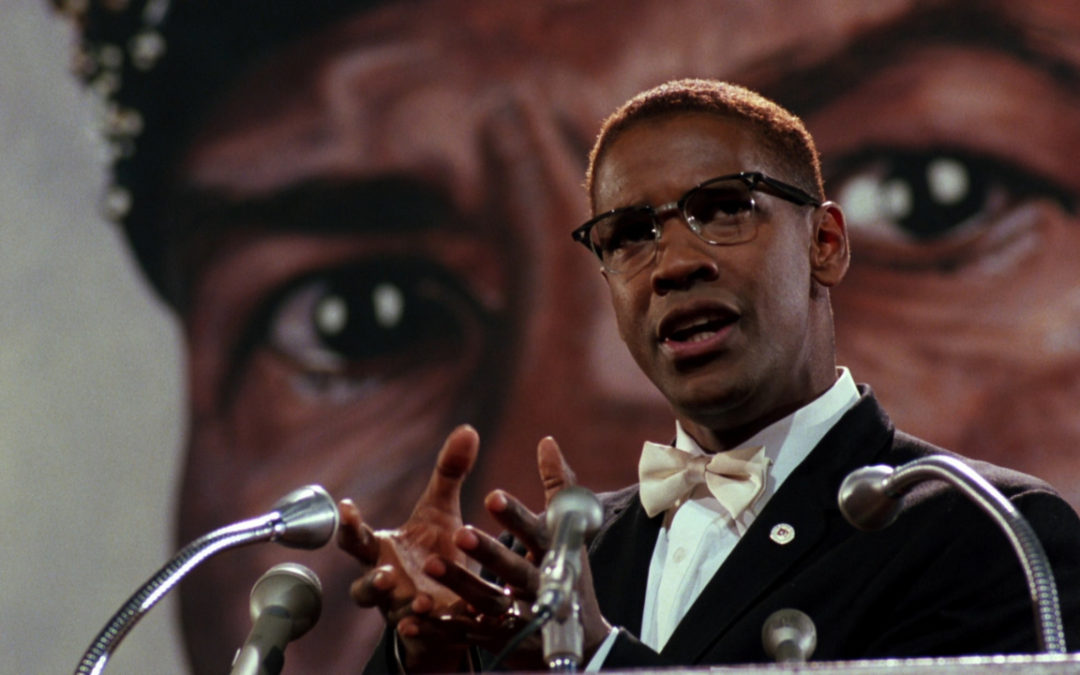
Recent Comments